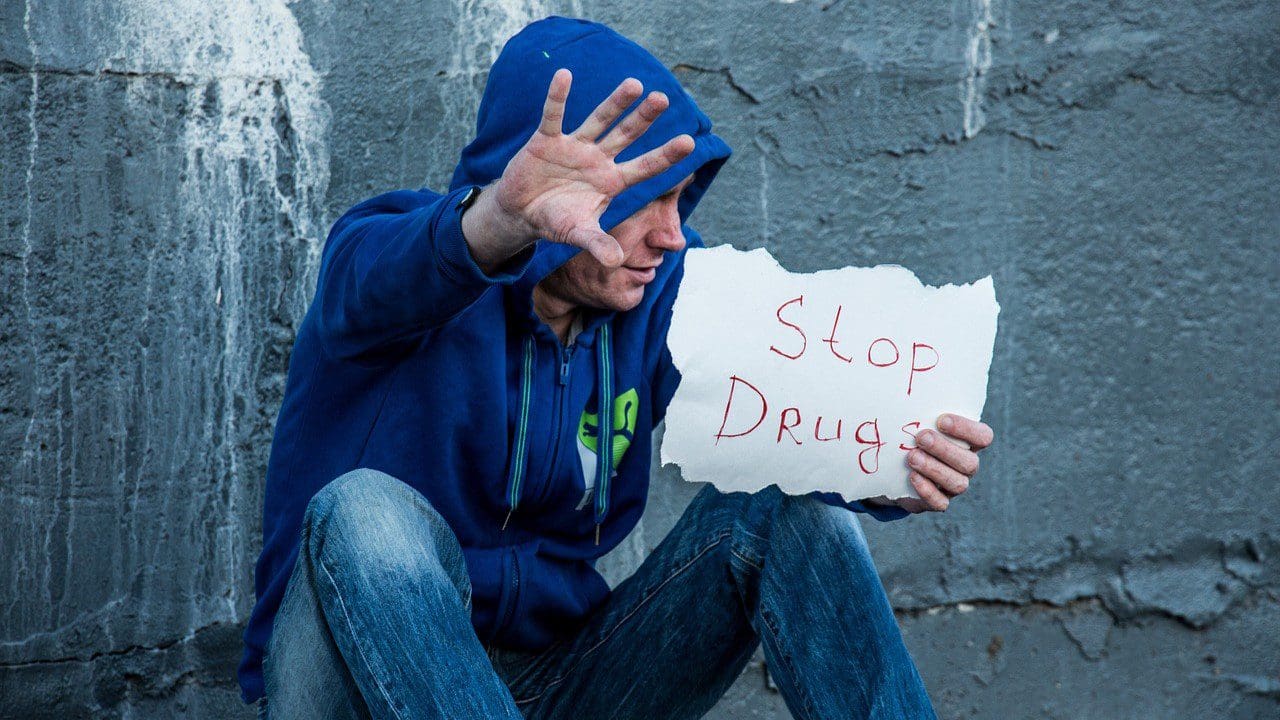On 10 August, Hungarian media reported extensively on the National Tax and Customs Administration having intercepted the largest drug shipment Europe has ever seen, estimated to be worth around 1.2 billion euros in Győr-Moson-Sopron County. The success of the operation can be largely attributed to Hungary’s drug laws that are strict by EU standards.[1]
In recent years, there has been a growing debate surrounding changing approaches to drug policies, essentially shifting towards decriminalization. In February 2023, the European Commission referred Hungary to the Court of Justice of the European Union for voting against the EU’s position following the WHO’s recommendations on removing cannabis from the Schedule IV of narcotic drugs, and move it to Schedule I.[2] This does not seem to have been a justified move, to say the least: Hungary, known world-wide for conservative leaning policies, is well within its right of national sovereignty to vote the way it sees fit. Budapest has the right to pursue its interest of maintaining its safe country status by enforcing policies that aid its citizens’ wellbeing. In fact,
Hungary has one of the strictest narcotic drug laws of the EU and intends to keep it that way
regardless of criticism. Probably not unrelatedly, the country remains one of the safest in the EU according to the Economic Global Peace Index; Hungary ranked 18th in the world by EGPI’s measures of societal safety and security, ongoing domestic and international conflicts, and militarization.[3]
The Hungarian conservative government maintains the stance that the proposition to legalize cannabis usage is a slippery slope towards a multitude of unintended consequences. Péter Szijjártó, Hungary’s Minister of Foreign Affairs, responded to the EU’s proposal of rescheduling by stating that ‘…together with Japan,…we think that rescheduling cannabis, considering it as a non-dangerous, non-risky object, is an outrageous interference with the national drug policies of the countries. This is a clear step towards drug liberalization which we consider extremely dangerous.’[4]
Hungary’s government is of the conviction that cannabis is addictive and disagrees with the theory that legalization eliminates the harms of the drug trade. The conservative government understands the probable ripple effect of cannabis legalization, leading to obvious negative societal implications. This is attested for example by a survey from the United States National Bureau of Economic Research following some states’ legalization of cannabis. According to the survey, ‘people 12 to 20 years old were 5 to 6 percent more likely to try marijuana for the first time when medical use was legalized.’ The study also found that once cannabis was legalized recreationally, it increased abuse and dependence in people 21 or older as well was associated with increases in adult binge drinking upwards to of six to nine per cent.[5] The effects of cannabis are still widely unknown as studies surrounding cannabis and its effects are slowly emerging as legalization is relatively new in some areas. According to the study, ‘the pharmacological account of the gateway hypothesis is difficult to identify empirically in the absence of controlled experiments on humans.’
The facts continue to show, however, that legalization and regulation of drug substances still promote an illicit market whereby people tend to be driven economically for cheaper alternatives than the legal product, according to a report by The Heritage Foundation.[6] Despite the overwhelming evidence that liberal policies do not work, there continues to be harsh criticism for Hungary and their ‘inhumane’ drug policies that are based in the deterrent effect of criminal sanctions instead of a social care approach.[7] Although it is against the mainstream liberal view,
the only real compassion in policy surrounding criminality and drugs is enforcement.
while there is clearly an inherent tension between the two policy approaches, enforcement can be coupled with a social care approach. Enforcement is a means by which a negative can be contained, limited, and monitored, which in turn allows for proper aid to be administered on a case-by-case basis without overwhelming the system and leading to an all-out public health crisis.[8] Enforcement allows for each complex case to be adequately addressed through the varying options of treatment and rehabilitation. The opposite policy approach of eliminating criminalization and penalization and
only addressing the issue through social care can be seen in cities throughout America,
and in some countries where they are constantly cleaning up the repercussions. A prime example in America is the liberal policies on drugs in cities like Philadelphia and Los Angeles. Motivated by harm reduction advocates, their policies may help fight infections and disease, but ultimately enable addictions rather than prevent them by handing out free drug paraphernalia and feed the revolving doors of overrun treatment centres.[9]
Another unintended consequence of liberal drug policies is the homelessness crisis which has gotten out of control; social care workers are overwhelmed, put in dangerous situations, and the police are overworked.
This debate is ongoing in the UK as well; Scotland has been battling a drug crisis through a Harm Reduction strategy. A public opinion survey claims that people feel reluctant to share spaces with active drug users because users gather around Scottish pharmacies that participate in the harm reduction services.[10] ‘Audit Scotland found that harm reduction strategies, like opioid substitution treatment (OST), naloxone, and safer injection equipment, have increased accessibility.’[11] Scotland recently proposed to overhaul their drug laws and create a caring and ‘compassionate’ policy approach which includes decriminalization of all drugs for personal use. A representative of the UK’s Prime Minister’s office disagrees and dismissed Scotland’s government proposal.[12] Ironically, at the same time, the British government is pushing new regulatory initiatives to control tobacco usage, while proposals like the ones on narcotics are taken off the table.[13]
As opposed to the liberal approach, policy proposals surrounding drug addiction from the conservative standpoint couple enforcement with treatment, which improves accountability and reduces the trafficking of those substances.[14] According to recent research, some United States jurisdictions have introduced graduated sanctions within the criminal justice system, which is designed to help facilitate behavioural change through more monitoring, treatment programme options, and incentives. ‘Research on the use of graduated sanctions has shown success across a variety of outcomes, including increased offender compliance and reduced revocation rates,’ a 2019 study reported.[15]
To sum up: Hungary’s penal system for drug offences is strict, but the system also accounts for treatment and rehabilitation options for those who are found guilty. While differing perspectives persist on the most suitable approach to drug policy, Hungary’s firm commitment to a conservative approach by combining enforcement and treatment remains essential for addressing drug-related issues effectively.
[1] DNH, ‘Video, photos: EUR 1.2 billion drug seizure in Budapest’, DailyNewsHungary.com, (10 August 2023), https://dailynewshungary.com/video-photos-eur-1-2-billion-drug-seizure-in-budapest/, accessed 11 Aug. 2023.
[2] European Commission, ‘Press Release: Brussels: The European Commission decides to refer HUNGARY’, Ec.europa.eu ( European Commission. (15 Feb 2023), https://ec.europa.eu/commission/presscorner/detail/en/ip_23_742, accessed 11 Aug. 2023.
[3] Institute for Economics & Peace Global Peace, Global Peace Index 2023, Visionofhumanity.org (2023), https://www.visionofhumanity.org/wp-content/uploads/2023/06/GPI-2023-Web.pdf, accessed 11 Aug. 2023.
[4] Statement of Mr Péter Szijjártó, Minister of Foreign Affairs and Trade of Hungary, at the UN Crime Congress (CCPCJ) in Kyoto on 8 March 2021, https://www.unodc.org/documents/congress//01_Statements_HLS/Statement_Hungary.pdf, accessed 11 Aug. 2023.
[5] National Bureau on Economic Research (NBER), ‘The Digest – Consequences of legalizing marijuana, Nber.org (10 Oct. 2014), https://www.nber.org/digest/oct14/consequences-legalizing-marijuana
[6]Paul Larkin, ‘Twenty-First Century Illicit Drugs and Their Discontents: An Introduction, Heritage.org (23 Sept. 2022), https://www.heritage.org/crime-and-justice/report/twenty-first-century-illicit-drugs-and-their-discontents-introduction, accessed 12 Aug. 2023.
[7]Tamas Varga, ‘Hungarian Drug Strategy: Punitive and Undemocratic’, Open Society Foundations (10 April 2012), https://www.opensocietyfoundations.org/voices/hungarian-drug-strategy-punitive-and-undemocratic, accessed 11 Aug. 2023.
[8] ‘The court may take the perpetrator’s drug use into consideration when imposing punishment. The option to suspend prosecution in the case of treatment is available to offenders committing drug law offenses that involve only small quantities of drugs.’ European Crime Prevention Network, ‘Preventing Secondary Victimization: policies & practices’, Eucpn.org (March 2016), https://eucpn.org/sites/default/files/document/files/toolbox_vii_-_final.pdf, accessed 11 Aug. 2023.
[9] A. B. White, ‘County’s plan to give out needles to drug users stirs debate’, CBS8.com (17 July 2023), https://www.cbs8.com/article/news/local/countys-plan-to-give-out-needles-to-drug-users-debate/509-dfd31f90-3e99-4e12-9760-6a537911961c, accessed 10 Aug. 2023; Locked Out: Homelessness in Long Beach [online video], Long Beach Post, 3 May 2023, https://www.youtube.com/watch?v=lk7jWAHogSM&t=11s, accessed 10 Aug. 2023.
[10] Wendy Gidman, Ross Coomber, ‘Contested space in the pharmacy: Public attitudes to pharmacy harm reduction services in the west of Scotland’, Research in Social and Administrative Pharmacy, Volume 10, Issue 3, May–June 2014, pp. 576-587, via ScienceDirect.com, https://www.sciencedirect.com/science/article/abs/pii/S1551741113001502, accessed 11 Aug. 2023.
[11] Audit Scotland, ‘Drug and Alcohol Services – An Update’, Audit-scotland.gov.uk (May 2019), https://www.audit-scotland.gov.uk/uploads/docs/report/2019/briefing_190521_drugs_alcohol.pdf, accessed 11 Aug. 2023.
[12] Craig Meighan, ‘Scottish Government calls for decriminalisation of all drugs for personal use in UK’, STV News (7 July 2023), https://news.stv.tv/scotland/decriminalise-drugs-for-personal-use-scottish-government-urges-uk, accessed 10 Aug. 2023.
[13] Ash, ‘Tobacco control policy in England,’ Ash.org.uk, https://ash.org.uk/law/tobacco-control-policy-england#:~:text=Advancing%20our%20health%3A%20prevention%20in,and%20%27make%20smoking%20obsolete%27, accessed 10 Aug. 2023.
[14] John H. Boman et al., ‘Responding to substance-use-related probation and parole violations: Are enhanced treatment sanctions preferable to jail sanctions?’, Criminal Justice Studies, Vol. 32/2019, issue 4, Ncbi.nlm.nih.gov (13 Sept. 2019), https://www.ncbi.nlm.nih.gov/pmc/articles/PMC8133702/, accessed 11 Aug. 2023.
[15] ibid.
The views expressed by our guest authors are theirs and do not necessarily represent the views of Hungarian Conservative.








